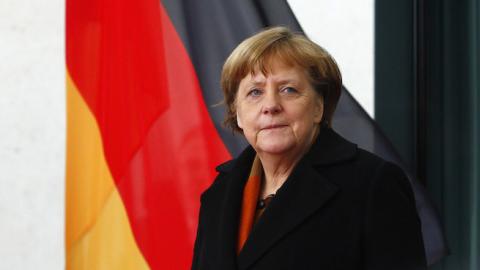On March 17th, the Chancellor of Germany, Angela Merkel, will come to Washington to have her first formal meeting with the President of the United States, Donald Trump. For Germans, this meeting has high significance given the President’s skeptical statements about NATO, the European Union, and Germany, especially Chancellor Merkel’s decision to admit hundreds of thousands of refugees from Iraq and Syria. While the parade of American Cabinet members and politicians – most notably Vice President Mike Pence -- who visited Germany for the Munich Security Conference offered reassuring messages, Donald Trump remains an enigma to the German political class. German politicians do not respond well to uncertainty, especially when uncertainty springs from a political figure who is seen as a populist.
What should Chancellor Merkel say when she sits down in the Oval Office? First, she should throw out the old rules that worked so well with Barack Obama. In the last Administration, the US was quite happy to outsource much of its leadership in Europe to Germany. Indeed, one could argue that no German chancellor, including Adenauer and Kohl, had as close a partnership with their American counterpart. This will not be the case under the new regime. Donald Trump has no interest in endowing Germany with added power and the days where Berlin could steer policy on Ukraine, Russia and other sensitive matters is over.
Second, Merkel should arrive bearing gifts. She should start the conversation by pointing out that German companies have invested heavily in the United States and, by some estimates, are responsible for the employment of 640,000 American workers. Following the example of Shinzo Abe, she should then talk about the future and the plans for new German factories in the United States. If some of these investments happen to be in Michigan, Ohio, Pennsylvania and other states that surprisingly voted for Trump, all the better.
Third, Merkel should make it clear that she understands that Germany needs to do more in providing security for its own people and for fellow Europeans to the east. She can cite the robust increase in German defense spending -- especially investments in countering new cyber and other threats. And, most importantly, she should emphasize her willingness to push the rest of Europe to do the same. She may want to seek affirmation of the President’s commitment to NATO but that should not happen until she has reassured him that Germany will no longer be a free rider.
Finally, the Chancellor should put an end to declaring that Great Britain’s exit from the European Union should be painful as possible. President Trump has not shown a great deal of interest in Europe but he has been clear about his unequivocal support for a return of sovereignty to the United Kingdom. She might then ask the President to work with her to ensure that continental Europe is not damaged by this process. To underscore the importance of this request, she can cite the over $1 trillion that American companies have invested within the European Union and the deep value to the US of having access to the common market.
At the end, Merkel and Trump should walk out, greet the press and affirm German-American ties. For her, there will be a temptation to play to German audiences that are increasingly anti-Trump and anti-American. The pressure on Merkel is mounting as her main opponent, the SPD’s Martin Schultz, seems intent on taking a page from his party’s 2002 playbook during a federal campaign in which Gerhard Schroeder won a surprise, come-from-behind victory by campaigning against George Bush and the Iraq War. Domestic politics notwithstanding, it would be a mistake for the Chancellor to assert greater distance from the United States, just as it would be a mistake for President Trump to complain in public about German “currency manipulation.” Moreover, the President should keep in mind that if Schultz wins, prospects for a significant increase in German defense spending—along with any number of other American priorities—will be very dim indeed.
Predicting the outcome of high-level White House calls and meetings is almost impossible. Most observers thought that Trump and the Prime Minister of Australia, Malcolm Turnbull, would hit it off—until they clearly did not. But if Merkel understands that the best course of action is to address Trump’s serious concerns about jobs, fair trade and defense, she should go back to Berlin with a new friend.



















